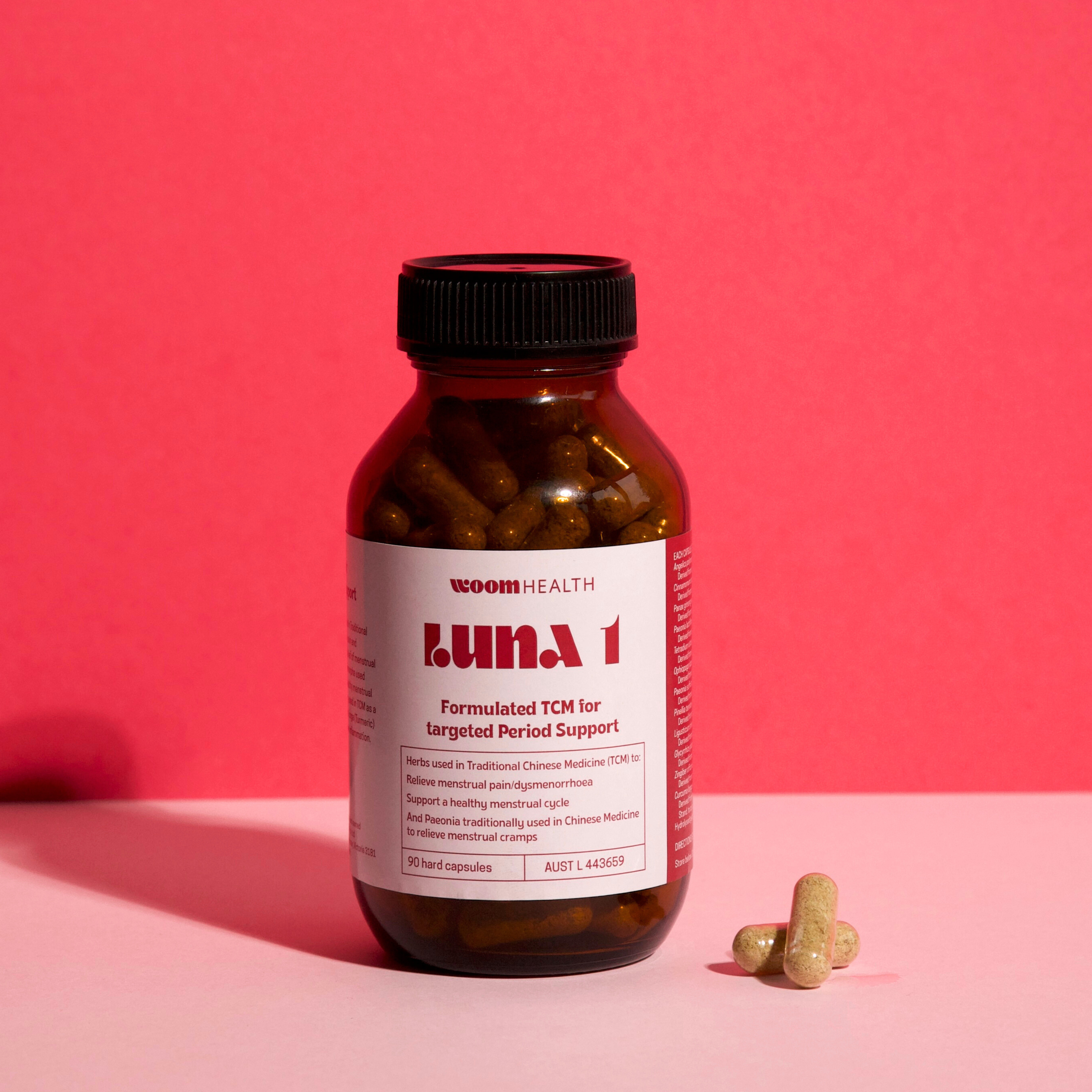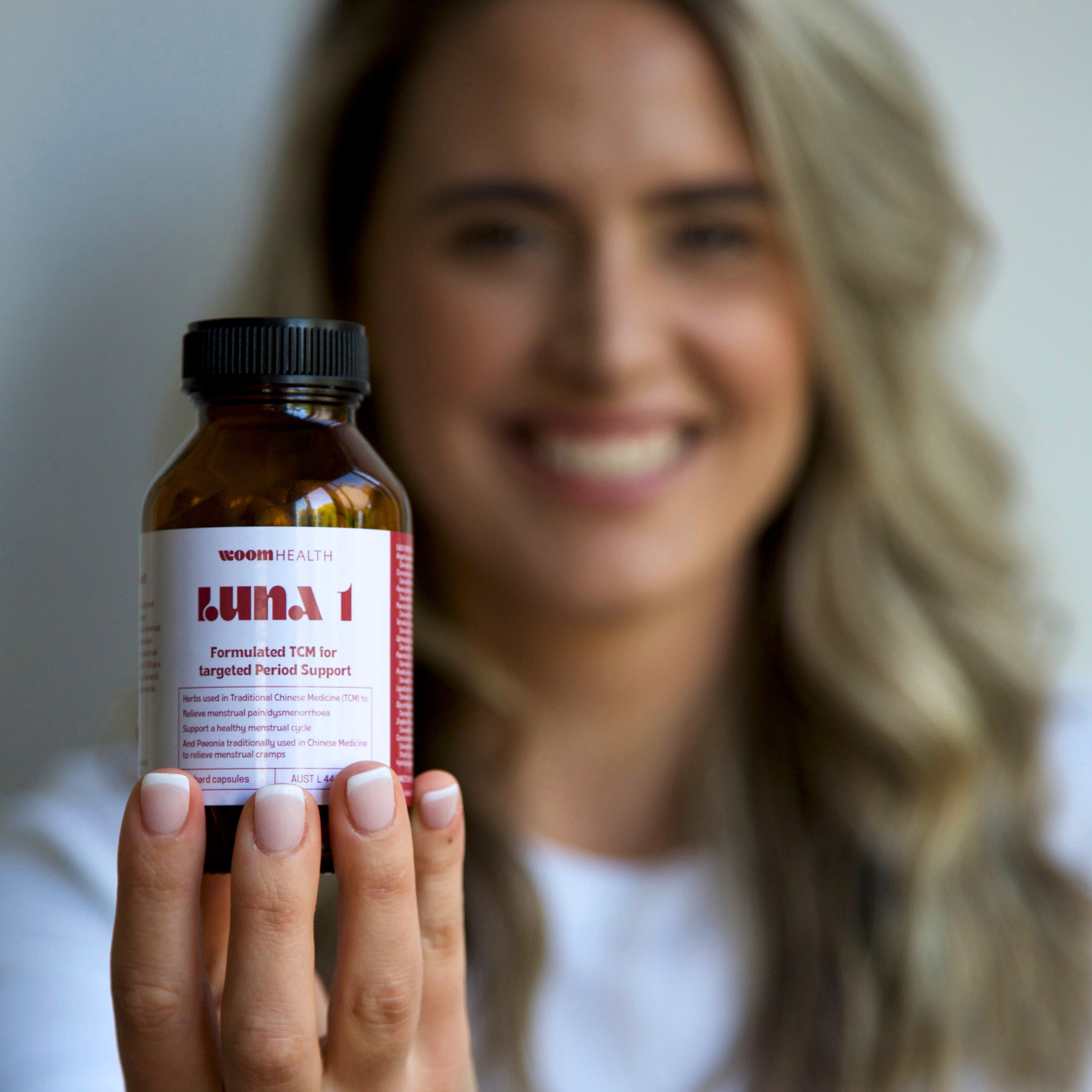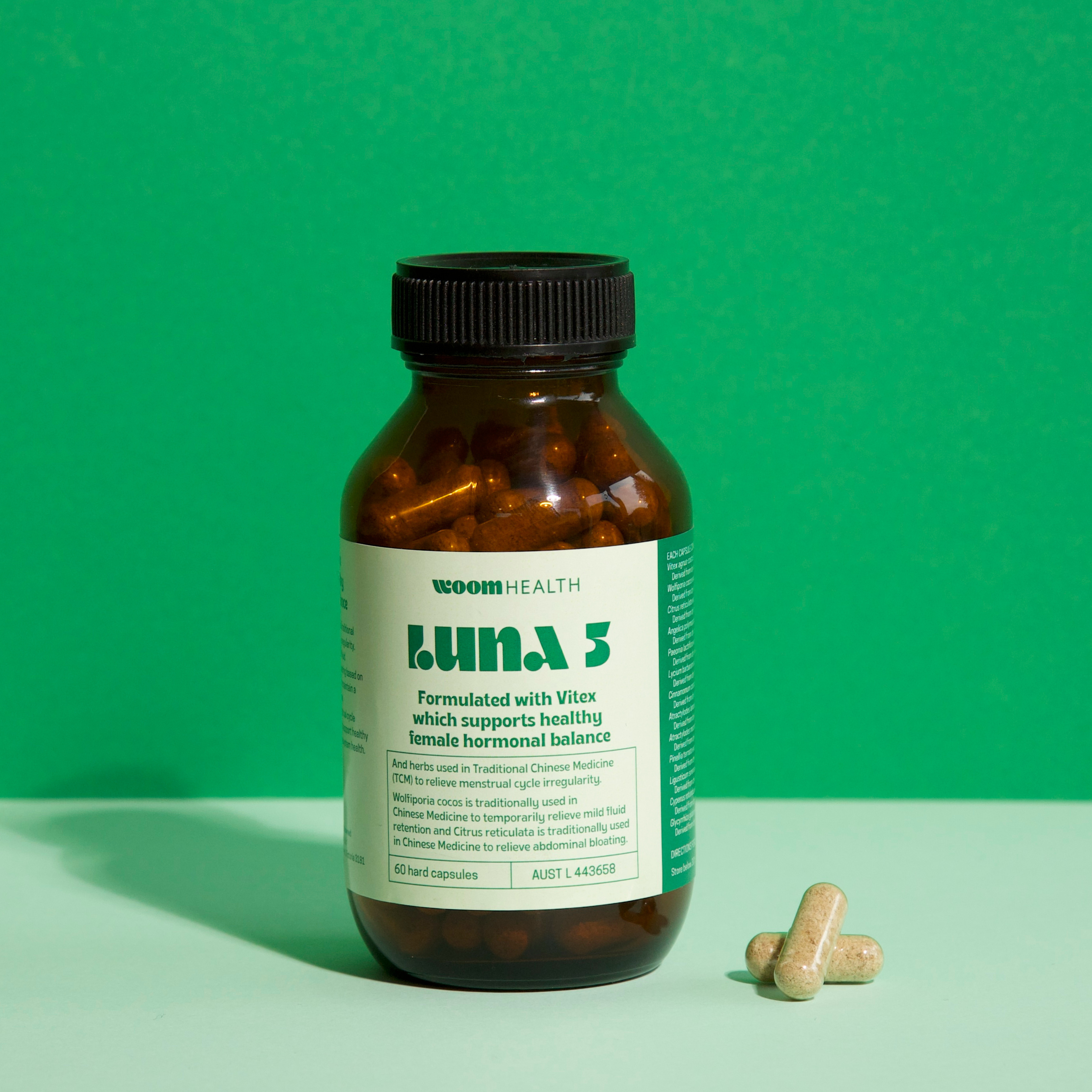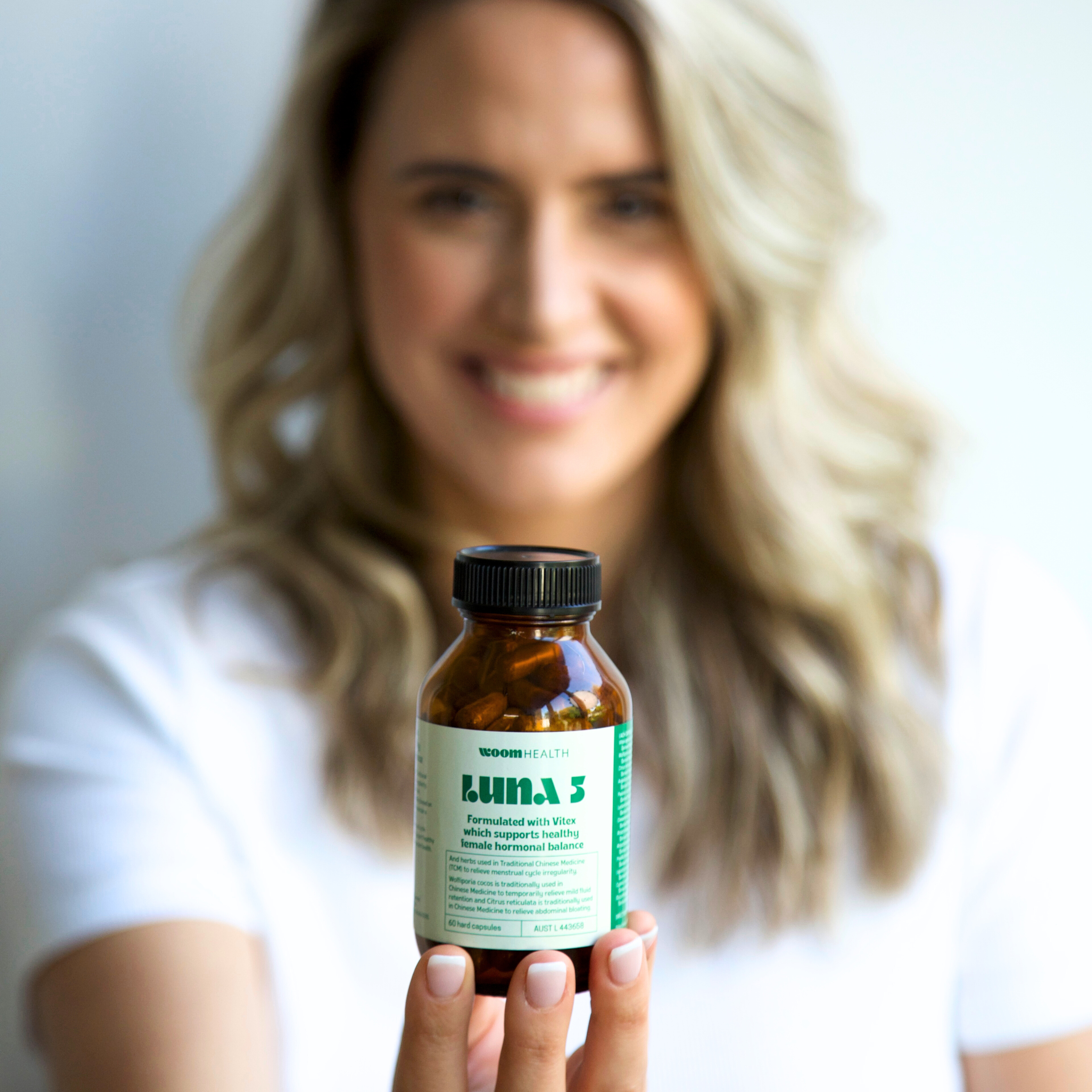Signs & Symptoms of Endometriosis
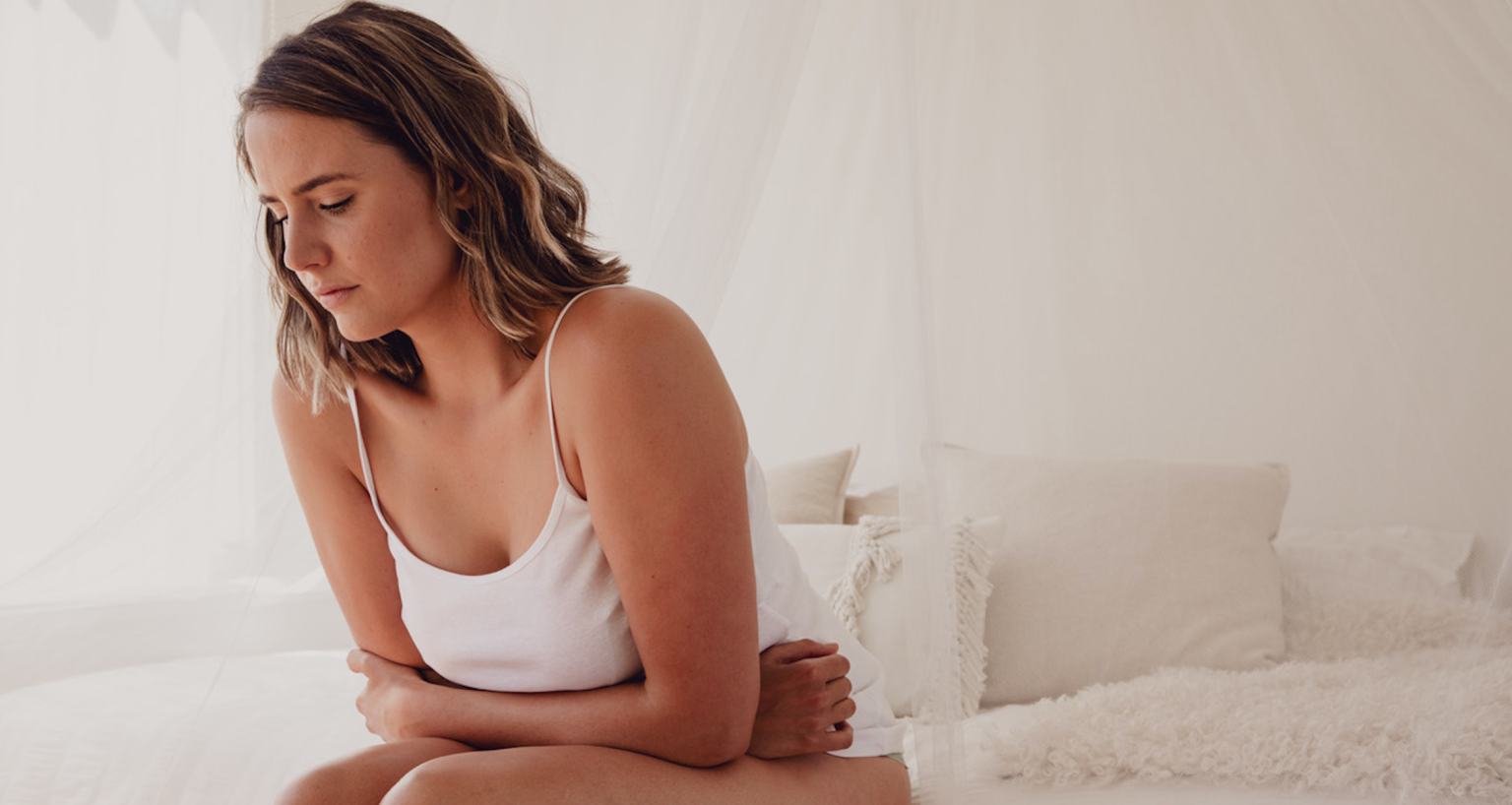
Did you know, endometriosis can develop as soon as you hit puberty, but the average age to receive a diagnosis for endometriosis is 28 years old?
Endometriosis is characterised by a constellation of symptoms. When doctors dismiss, misdiagnose, or overlook these symptoms, it may take years to receive a proper diagnosis.
Taking the symptoms of endometriosis seriously is essential for mensturator’s health. And knowing what they are is the first step to uncovering this common gynaecological condition and learning how to treat it.
Don’t know the signs and symptoms of endo? No worries. We made a list!
Chronic pelvic pain
Endo is a TOTAL pain – literally!
Dysmenorrhea (painful periods) is the most common symptom of endo, and it typically occurs with menstruation and prostaglandins are the culprit.
The endometrium (uterine lining) is a highly vascular gland that secretes prostaglandins. Prostaglandins cause gentle uterine contractions to expel (release) the endometrium. Essentially, they cause hypoxia (death of the cells) and secondly stimulate smooth muscle to contract.
Women with endo have higher levels of a certain kind of prostaglandin than those without endo [1]. Elevated prostaglandins are associated with inflammation and cytokines (inflammatory markers).
Abnormal uterine contractions could also cause dysmenorrhea. Some research shows that the frequency and severity of uterine contractions are higher in women with endo [2].
Other than painful periods, endometriosis can also cause:
- Mid-cycle pain or ovulation pain
- Pain during bowel movements or urination
- Back pain
- Shooting pain in legs or inner thighs
- Nerve pain
- Vaginal discomfort
- Dyspareunia (pain with sex)
While many menstruators experience some mild cramping during their period, the pain is often more intense in women diagnosed with endometriosis. The pain can be chronic and excruciating and bring emotional distress during menstruation or sexual intercourse.
Infertility
In addition to painful periods, infertility is one of the most common symptoms of endometriosis.
Research shows that menstruators with endometriosis are 6 to 8 times more likely to suffer infertility than those without endo [3]. One study even says between 30%-50% of menstruators with endo are infertile [4].
The connection between endometriosis and infertility isn’t entirely clear. However, it could be that endometriosis:
- Alters egg quality [5]
- Causes hormonal imbalance
- Creates scar tissue on the reproductive tract
- Impairs blood flow
- Inhibits fertilization and implantation
Endo is often undiagnosed, misdiagnosed, or undiscovered until infertility becomes a problem. For couples trying to conceive, this can be a very distressing symptom. In these cases, natural procreative technology (NaPro Technology) and in-vitro fertilization (IVF) are options for those who would like to achieve pregnancy [6, 7].
Irregular menstrual cycles and heavy bleeding
It’s good to be in flow, but is your period flowing a little too much?
Endometriosis is a common cause of irregular cycles and heavy periods.
Be on the lookout for:
- Heavy bleeding (flooding)
- Clotting
- Short cycles
- Long cycles
Gastrointestinal issues
Do you frequently pull over to find a bathroom? Or do you make sure a bathroom is always within distance while out and about?
A recent 2020 meta-analysis concluded that menstruators with endometriosis are at two or more times higher risk of IBS than those without endo [8].
It is common for endometriosis to be misdiagnosed as IBS (irritable bowel syndrome) and vice versa. The two conditions have similar symptoms.
For those with endo, these symptoms usually occur around menstruation:
- Abdominal pain
- Constipation
- Diarrhoea
- Intestinal Gas
- Urgent need to defecate
- Nausea and vomiting
- Bloating
Sharp pains during bowel movements can also be a big sign of endometriosis. Endometrial lesions can form on the rectum causing pain with bowel movements around the time of menstruation.
Bloating
AKA endo belly! Many menstruators experience bloating during an endo flare-up.
Although the exact cause is unknown, the endo belly can bring gut irritation, a feeling of pressure, tightness in the lower abdomen around menstruation.
Endo belly or bloating can bring chronic swelling in the abdominal region, and it can look extreme – at times similar to a pregnant belly.
Fatigue
Fatigue might be the most overlooked symptom of endometriosis.
It’s common to feel generally tired and unenergetic around menstruation, but fatigue can significantly bog down those with endo.
Research shows that over 50% of women with endometriosis experience fatigue [9]. There is a correlation between endometriosis and insomnia, depression, and stress which could also be the reason many menstruators experience fatigue.
Changes in mood or behavior
It’s not all in your head. Menstruators with endometriosis are at a higher risk for anxiety, depression, and other mental health issues.
Researchers are not entirely sure if endometriosis itself causes depression or if the distressing symptoms are the culprit. One recent study suggests that inflammation and chronic pain are the cause of depression in those with endo [10].
No matter the cause, it’s certain endometriosis negatively affects the quality of life, and menstruators with this condition need encouragement and support [11].
Reading the signs of endometriosis.
Many symptoms of endometriosis coincide with your menstrual cycle. As your 5th vital sign, your menstrual cycle can tell you if something is off and can be the first clue to uncover endometriosis. Symptoms need to be investigated, especially if they alter your quality of life.
Alert your doctor if you notice these signs:
- You are missing work, school, or activities
- You are taking pain medications, but they don’t work
- You stay in bed all day during that time of the month
- You feel distressed or defeated over your symptoms
- You feel like your mental health is declining
Typically, birth control pills and other forms of hormonal contraceptives such as IUDs are used to manage symptoms of endometriosis.
It’s important to remember that while painkillers and hormonal contraceptives (such as Mirena or the Pill) can certainly help manage symptoms, they will not stop or treat the growth of endometriosis. They only mask symptoms.
Alternatives for drugs and hormonal contraceptives to treat symptoms are lifestyle changes and all natural treatments.
Your symptoms are real!
Being told these symptoms are “normal” is NOT ok. Menstruators with endometriosis deserve to have their symptoms taken seriously so they can receive a proper diagnosis and get the treatment they need.
See the science:
- Endometriosis.org. Accessed November 6, 2021. https://endometriosis.org/treatments/painkillers/
- Bulletti C, De Ziegler D, Polli V, Del Ferro E, Palini S, Flamigni C. Characteristics of uterine contractility during menses in women with mild to moderate endometriosis. Fertil Steril. 2002;77(6):1156-1161.
- Bulletti C, Coccia ME, Battistoni S, Borini A. Endometriosis and infertility. J Assist Reprod Genet. 2010;27(8):441-447.
- Practice Committee of the American Society for Reproductive Medicine. Endometriosis and infertility: a committee opinion. Fertil Steril. 2012;98(3):591-598.
- Drseckin.com. Accessed November 6, 2021. https://drseckin.com/endometriosis-and-egg-quality/
- Naprotechnology.com. Accessed November 6, 2021. https://naprotechnology.com/surgical/
- Mayoclinic.org. Accessed November 6, 2021. https://www.mayoclinic.org/tests-procedures/in-vitro-fertilization/about/pac-20384716
- Chiaffarino F, Cipriani S, Ricci E, et al. Endometriosis and irritable bowel syndrome: a systematic review and meta-analysis. Arch Gynecol Obstet. 2021;303(1):17-25.
- Ramin-Wright A, Schwartz ASK, Geraedts K, et al. Fatigue – a symptom in endometriosis. Hum Reprod. 2018;33(8):1459-1465.
- Warzecha D, Szymusik I, Wielgos M, Pietrzak B. The impact of endometriosis on the quality of life and the incidence of depression-A cohort study. Int J Environ Res Public Health. 2020;17(10):3641.
- Laganà AS, La Rosa VL, Rapisarda AMC, et al. Anxiety and depression in patients with endometriosis: impact and management challenges. Int J Womens Health. 2017;9:323-330.
